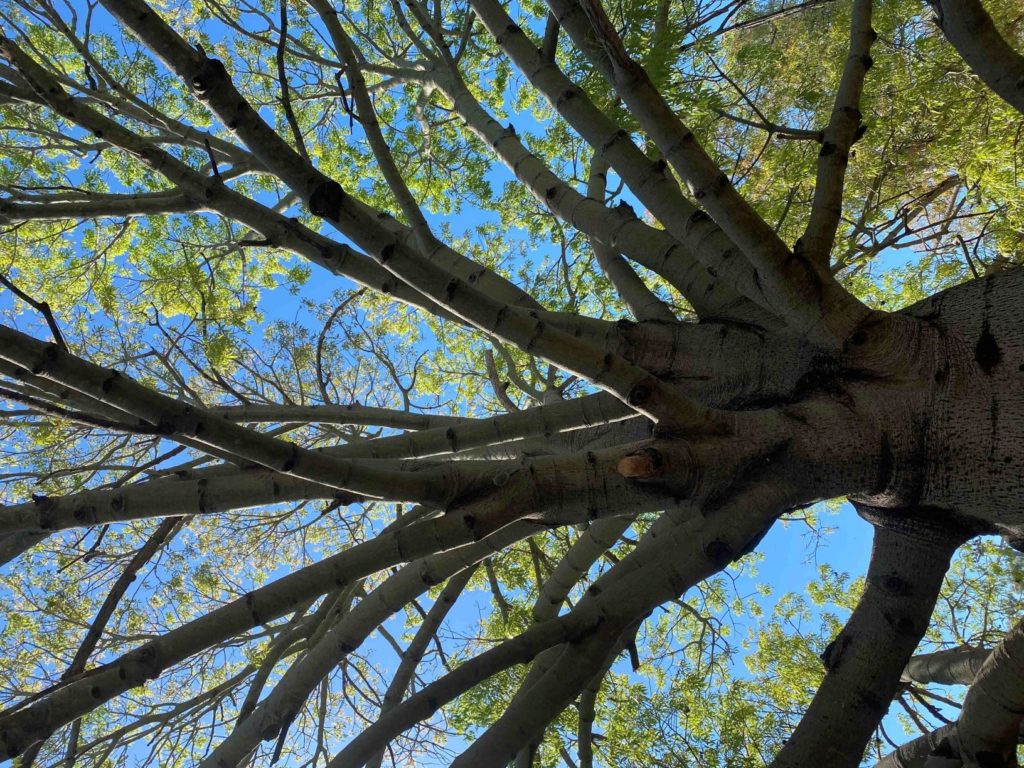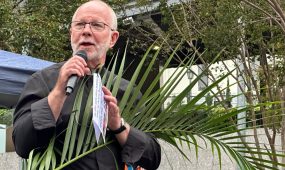Learning from trees…
Reflections
“…if we were to imagine our Diocese, or national Church, as a forest…what kind of forest would we imagine ourselves to be? Would there be many kinds of trees offering different flowers and fruit – or the monoculture of a single tree species?” asks Bishop Cam Venables

I think we live in a culture that encourages and applauds busyness. For when we ask each other what we did on the weekend, it would be unusual to say that on one afternoon we’d sat quietly on the veranda with a pot of tea thinking about nothing in particular! Much more likely that we’d respond with a tally of small achievements: that we’d weeded the garden, done the washing, called the kids, and responded to the never-ending requests of work-related emails.
Advertisement
Even in our down time we have extraordinary opportunities to be entertained and distracted with endless streamed TV series and movies, and many rabbit holes to go down on Facebook and Google.
In his three years of ministry, the Gospels tell us that Jesus took time out from his busyness and the demands of the crowds that followed him to be quiet and still. Perhaps recognising the wisdom of that, and seeking to model our life on his, we could resolve to make such times a priority next year?
For each of us the rhythm and places would be different, but the principle would be the same. In God’s grace we seek to become better calibrated in such activity and find through it, among other things, renewal, peace, and insight.
Over the years, I have found trees to be helpful companions in times of reflection, particularly trees that are older than me! For, when we look at a tree we have to stop because they are stationary…and sit or lie down. We might contemplate some of the things that the tree has had to endure in the course of its long life: many months without rain; destructive storm winds; fire, perhaps; borers, termites and fungal disease…and, yet it has endured. Recognising this we might bring to mind the tough stuff of our own lives and be encouraged, or even inspired, to keep going.

“Over the years, I have found trees to be helpful companions in times of reflection, particularly trees that are older than me!” (Bishop Cam Venables)
We might also consider the many living things that the tree gives life to in some way. The creatures that are fed by flower and fruit, and the creatures that find shelter in its bark and branches. And we might consider those who look to us for food, shelter, and life-giving friendship, as well as those who share such things with us.
I’ve probably fallen into another trap of our culture and which is to think of what a tree might teach us as individuals and not what trees might teach us collectively.
Advertisement
So, let’s imagine trees living together in a forest and us being in that forest quietly observing. What do you imagine? Are there many kinds of trees in your imagined forest, or are they all one species?
In natural ecosystems there are many kinds of tree and each supports a variety of insects, birds and animals. The greater the biodiversity the more there is to see, and the noisier it is. A good example are the tropical rainforests of North Queensland. According to people who understand these things, the greater the biodiversity the healthier the ecosystem because in these there is greater resilience to disease, and everything is interdependent.
In contrast if there is only one tree species present – like the large plantings of conifers created by forestry – there is very little biodiversity – invasive species are controlled by herbicides and pesticides – and there is an eerie silence.
With this in mind, if we were to imagine our Diocese, or national Church, as a forest…what kind of forest would we imagine ourselves to be? Would there be many kinds of trees offering different flowers and fruit – or the monoculture of a single tree species? Do we recognise the value of theological diversity and interdependence, or do we reject this in favour of a theological monoculture?
Would love to hear your thoughts.





